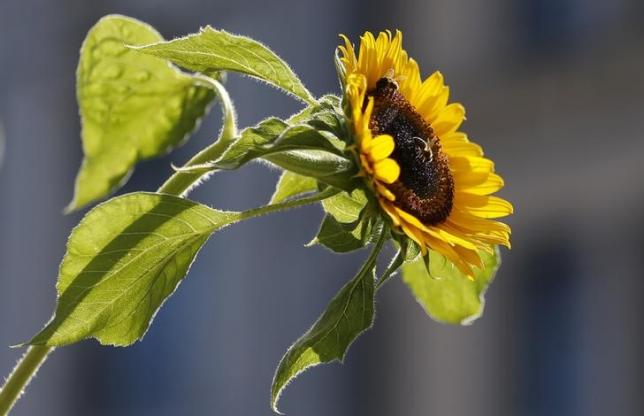
Widely-used pesticides made by Bayer CropScience and Syngenta pose a risk to bees, the European Union’s food safety watchdog said on Wednesday, reinforcing previous research that led to EU restrictions.
The European Food Safety Authority (EFSA), which guides EU policymakers, said leaf spray containing three neonicotinoid pesticides could harm bees, whose pollinating role is estimated to be worth billions of euros for the bloc’s farm sector.
“The protection of bees and the protection of pollinators is one of the essential elements that we consider in the risk assessment of pesticides,” the EFSA said in a statement.
The previous research had found that the three pesticides — clothianidin, imidacloprid and thiamethoxam — posed a risk when used as seed treatments or granules, prompting the European Commission to limit their use from Dec. 1, 2013.
“They (the EFSA conclusions) confirm that the Commission was correct to take precautionary measures in 2013,” the Brussels-based EU executive said in a statement.
Bayer CropScience said its scientists were reviewing the new EFSA findings, adding it was “convinced that neonicotinoids are safe, when used responsibly and properly”.
The European Crop Protection Association, which represents the European pesticide industry, said the EFSA approach was flawed and that this meant the watchdog was “able to identify risks for neonicotinoids as they would for any other insecticide, including organic ones”.
The use of the three neonicotinoid substances in seed or soil treatments is prohibited in the European Union for crops attractive to bees and for cereals other than winter cereals except in greenhouses.
Their use in foliar treatments — feeding plants by applying liquid fertilizer directly to their leaves — is banned for crops attractive to bees and on cereals, except in greenhouses or after flowering.
Environment campaigners said the pesticides should never have been allowed in the first place.
“Questions need to be asked about how these products were ever approved for use,” said Paul de Zylva, a campaigner at the environmental group Friends of the Earth.
The group this month launched a legal challenge to a British decision to allow some farmers to use neonicotinoids after London won an exemption from the EU restrictions.
As part of a two-year review process, the EFSA has asked national authorities, research institutions and other interested parties to submit new relevant information by Sept. 30.
Depending on an evaluation of the information, the Commission says it could change the rules.
Proponents of neonicotinoids say they have a major economic benefit because they destroy pests and help to ensure abundant food for a growing world population.
But those demanding greater protection for bees stress the insects’ economic value. Some 75 percent of crops traded on the global market depend on pollinators and the value of pollination in Europe is estimated at 14.6 billion euros.
BRUSSELS |
from reuters.com (update to article)
